8 Benefits of Business Blogging Beyond Traffic Generation
Are you interested in using your blog to generate value for your organization and contribute to business growth? Here are the top goals you should be setting for yourself when blogging.
I want to let you in on a secret.
The hardest part of writing successful content isn’t the writing itself—it’s knowing what topics to write about. There’s nothing more frustrating than staring at a blank page with no idea where to start.
But don’t worry—your outer muse is here. Today, I’ll guide you through how to generate content ideas that will help you achieve your goals.
By the end of this post, your content calendar will go from sad and empty—
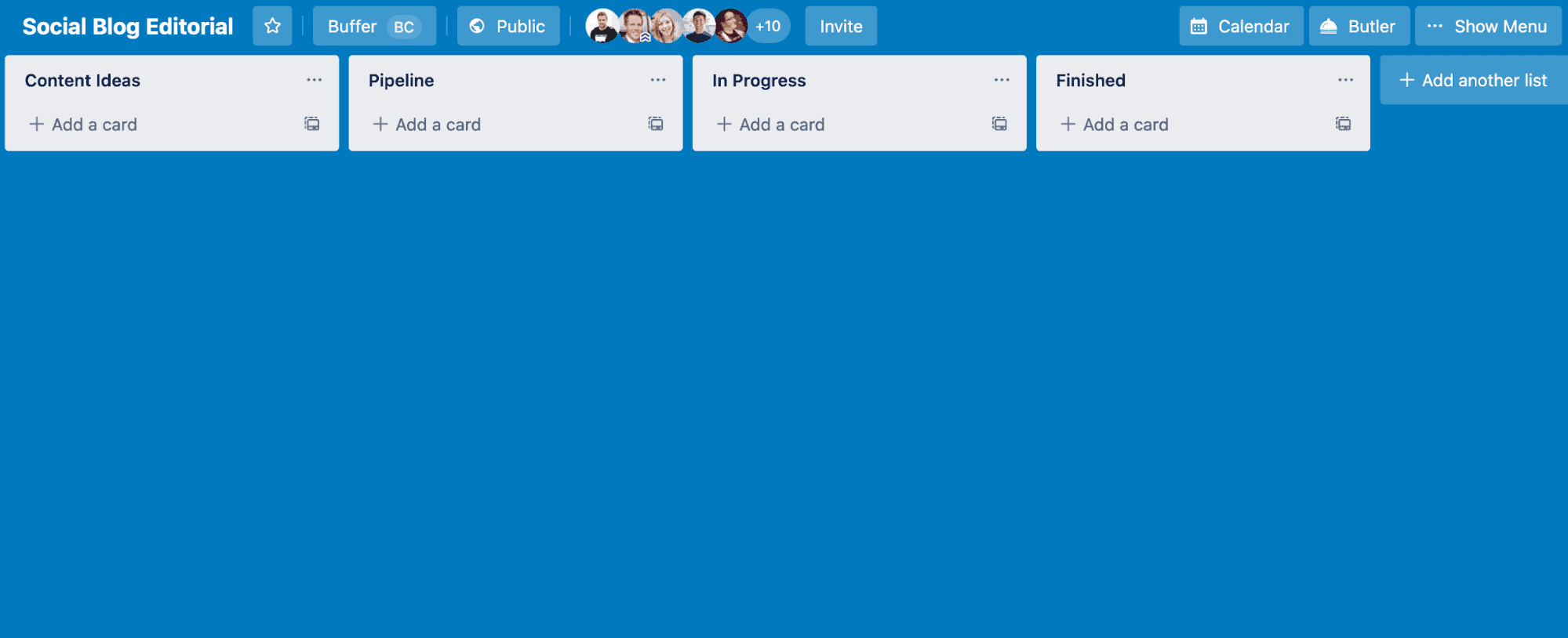
—to brimming with content your audience will love:
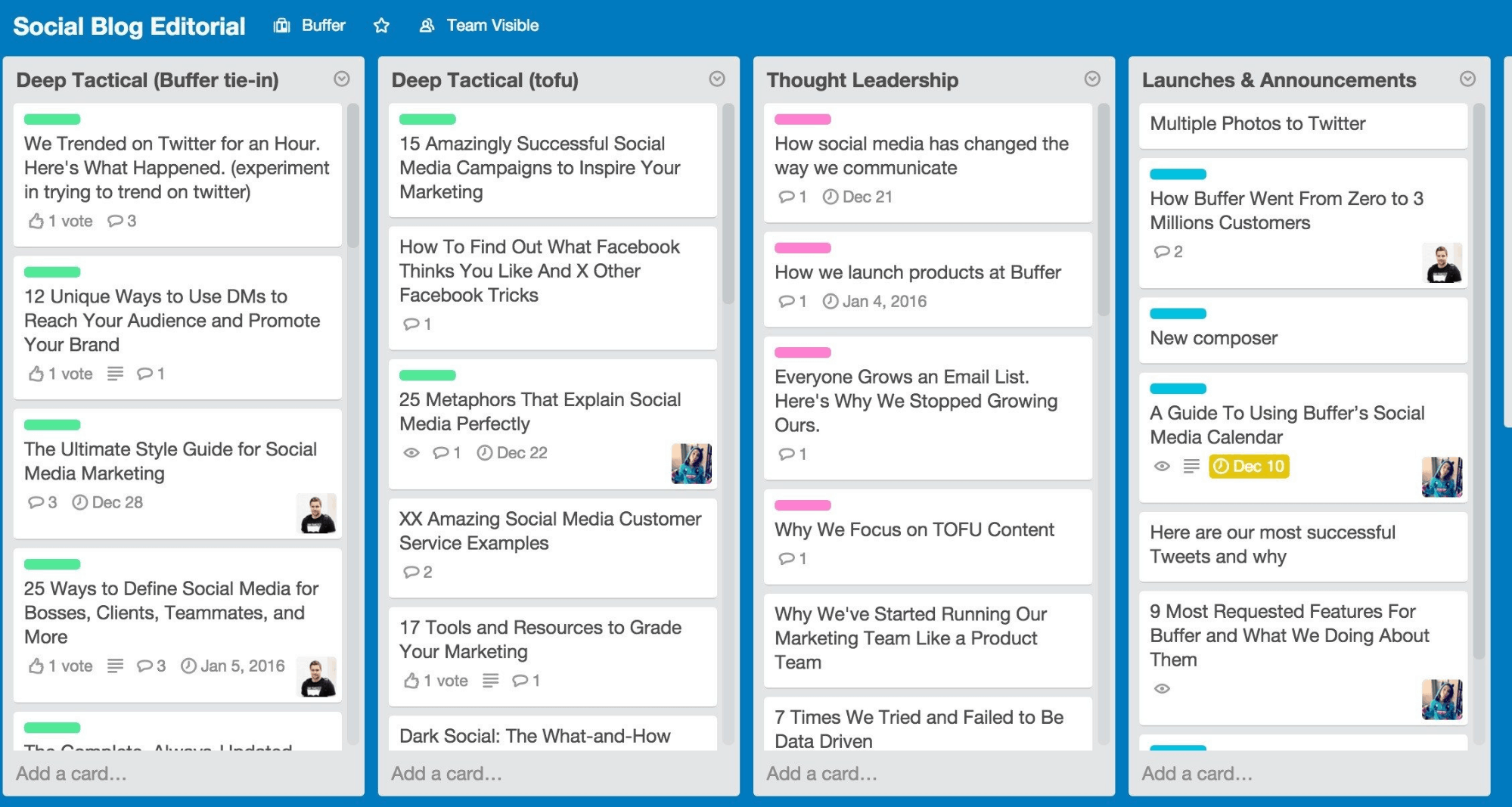
Let’s jump right in…
The EASIEST way to find something to write about is to document what you’re working on day-to-day.
But often the biggest blocker to actually doing this is ourselves – we are our own worst enemy. I’ve heard this excuse plenty of times…
“But Ash, my day-to-day is boring…”
Sure, you might not be working on a new theory of relativity, but the work you do will always be interesting to someone. Your most dedicated readership will come from the people that matter most to your business: your customers.
Let’s say you’re a freelance marketer. Your clients—and prospective clients—would absolutely love to get a peek behind the curtain at how you work. And you don’t have to share your secrets, either. Something as simple as your daily routine can be super engaging to others. [*]
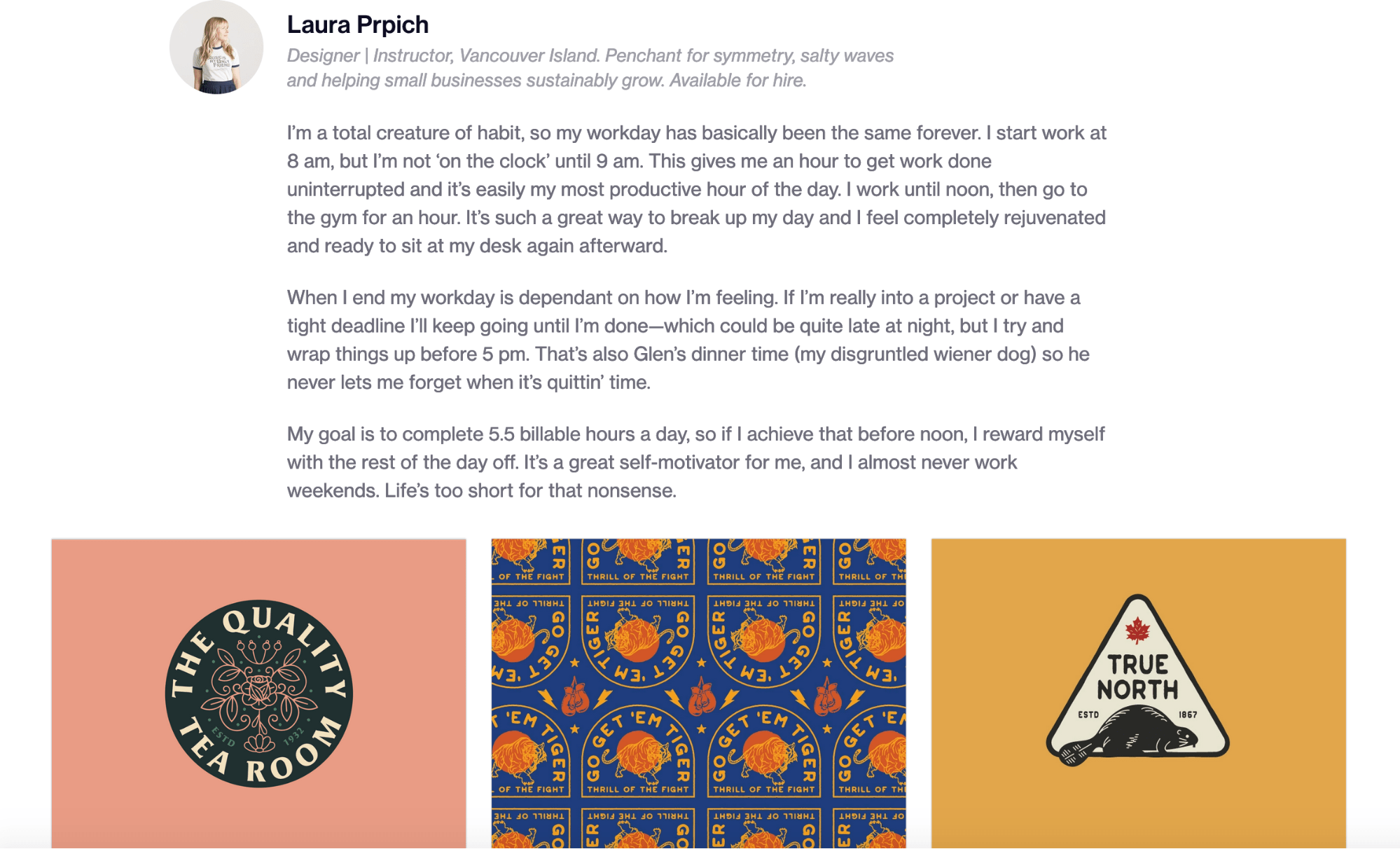
You could also share your approach to a new challenge that’s popped up in your work:

Or if you’re a software company you could take your customers behind-the-scenes to show how you work and why you’ve made certain decisions:

The possibilities when it comes to sharing your processes are endless. Almost every part of your day-to-day work can inspire new things to write about.
But to get you started, here are three simple ways to document your journey:
Stories are how we connect to one another, and people love to consume content filled with real-world examples and anecdotes. Plus, you've got one constant stream of inspiration: yourself! One of the best and simplest ways to find things to write about is to break down your daily life into a series of blog posts.
When people get stuck, they turn to the internet to find a solution.
Sites like Reddit are full of people asking questions, which means that these platforms are incredible places to find things to write about for your business.
There’s literally a subreddit for everything—in fact, there are over 2 million subreddits. No matter your industry, you’ll be able to find something to write about on Reddit. [*]
Here’s how:
First, locate a relevant subreddit. Let’s say you’re an interior designer. Just head over to the appropriately named r/InteriorDesign:

Next, head up to the search and look for words and phrases that indicate someone is looking for a little help. Things like:
These words and phrases will help you to find problems your audience is experiencing.

Then you'll see a list of results matching your search criteria:

Sort the posts by ‘Top’ and you can view the most upvoted/commented on posts that match your initial search criteria. From here, you’ll basically have a jampacked list of things to write about:

We can already come up with three content ideas from these results:
And these three ideas came from one quick search on Reddit. If you scroll a little further and repeat this process across relevant subreddits, you’ll quickly collecct plenty of things to write about.
The great thing about this process is that the topics are already vetted and validated for you – they've previously been upvoted on Reddit and generated a lot of discussion. That means you know these subjects will resonate with your target customers before you even start writing.
Ever wondered how some businesses manage to land in the #1 spot on Google?
It all starts with keyword research.
Keyword research is the process of uncovering the search terms people use in Google. For example, you might have discovered this post by searching “things to write about” or a similar term.Keyword research helps you uncover the topics people are already searching for. So before writing a word, you'll have evidence that there's demand for your content. Plus, you'll understand the potential traffic it could generate.
For example, when people search for “powerful words” on Google—

They'll see this Sumo post first:
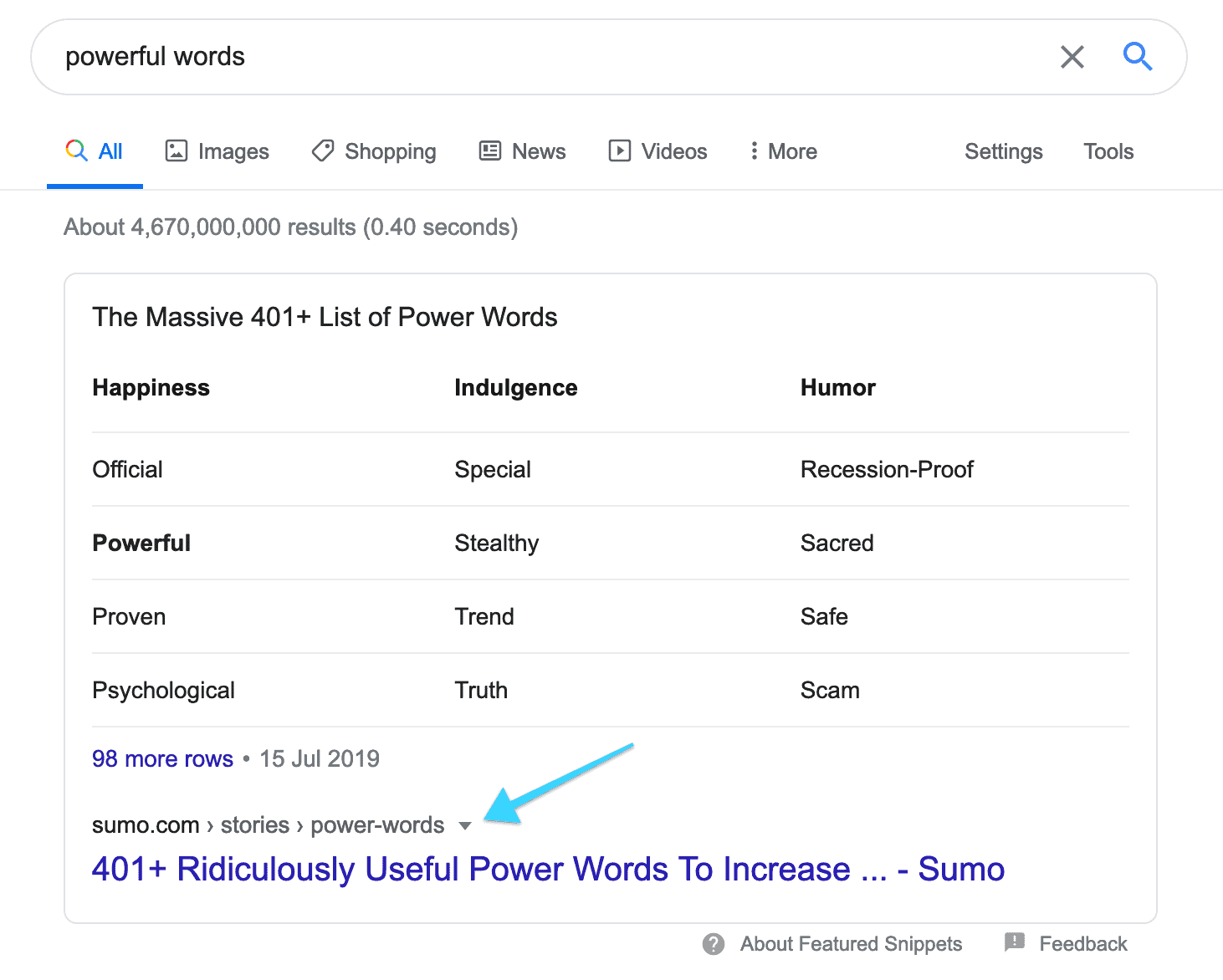
The goal of keyword research (and SEO in general) is to help potential customers discover your business via relevant search terms.
So in the case of the example above, ‘powerful words’ are great tools to increase conversions… and Sumo is a tool that helps people to convert website visitors into customers. It’s a perfect fit.
The first step of keyword research is a simple one: brainstorm.
To get started, list a few broad, high-level topics that relate to your business. If we're sticking with Sumo—a tool for email capture—I might list out topics like:
Now, these broad topics are called “short-tail” or “head” keywords in the SEO world. They're difficult to rank for if you’re just getting started. But what you can do is use short-tail keywords as a base to dig deeper. That way, you can uncover more long-tail keywords (phrases made up of 3-5 words) that might be easier to rank for.
One free tool to help you get rolling with keyword research is LSIGraph.

With LSIGraph, you can enter your high-level keywords into the search field and see a list of related, longer-tail phrases. For example, here’s what we see if we search for email lists in LSI:
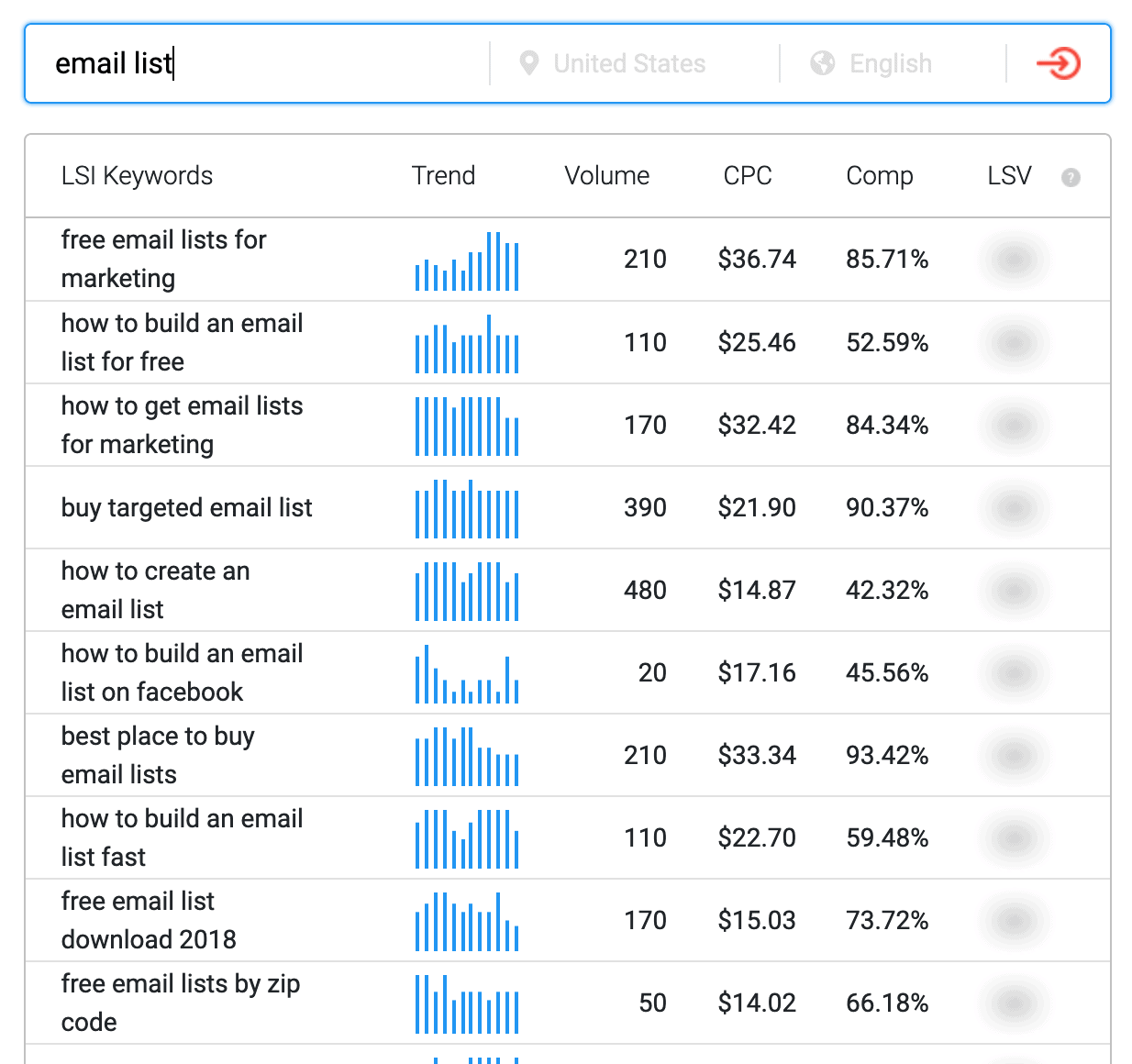
Using these results, you can find a bunch of long-tail keywords and ideas for what to write about. (P.S. if you're in this space, I’d jump at the ‘how to build an email list for free’ phrase.)
Another great tool to generate keyword ideas is AnswerThePublic. AnswerThePublic helps you uncover questions people are asking Google based on a keyword/phrase you enter.
Here are the results from searching ‘email marketing’ in AnswerThePublic:
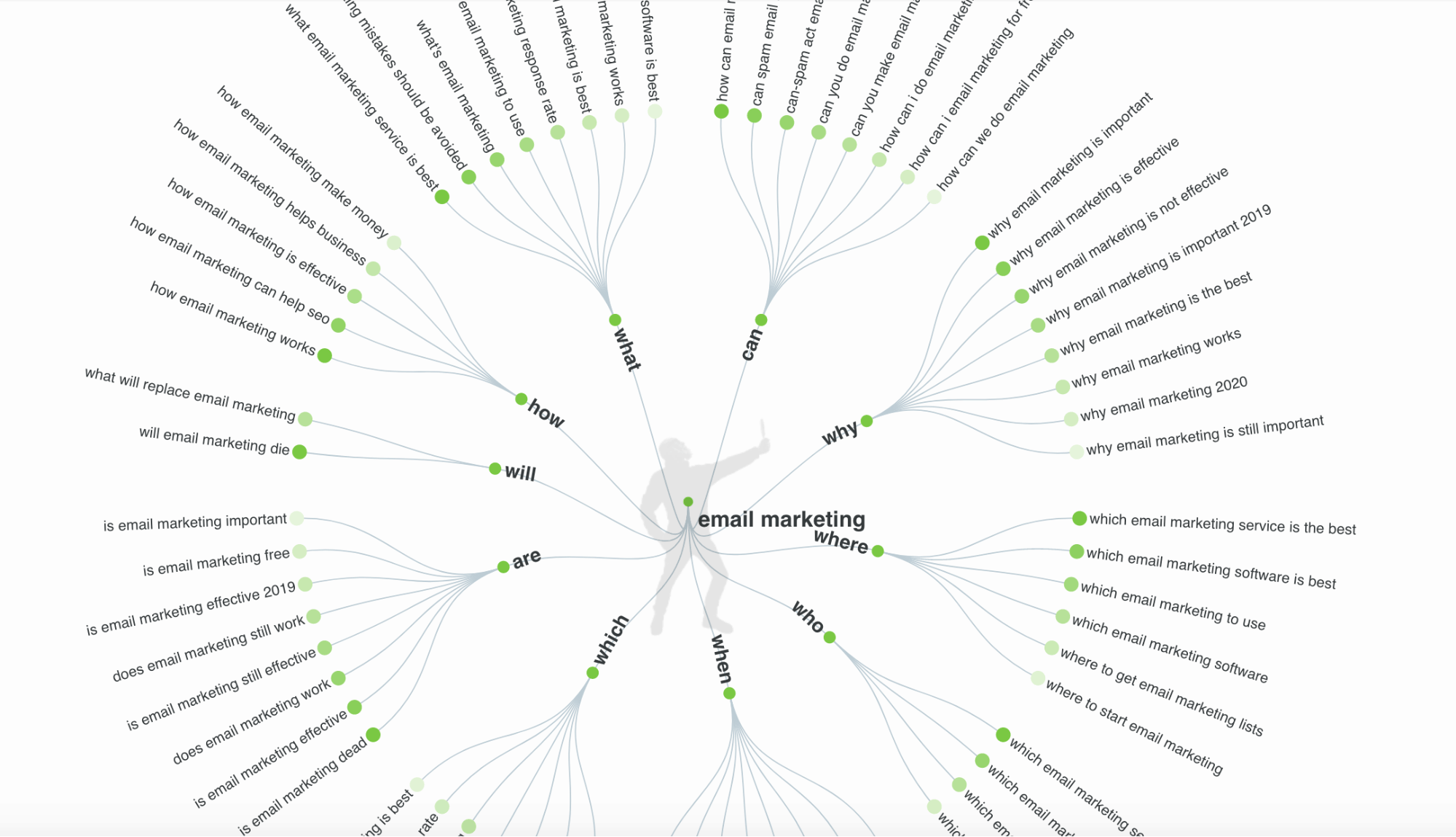
This is a GOLDMINE. Almost every result here is something you could write about. For example, here are five blog post ideas from these results:
Keyword research works universally across any industry or niche. No matter what topic you’re looking for, these tips will help you find some things to write about.
No matter what industry you're in, there’s always something to talk about:
Every industry is always evolving and changing. To win new business, it's wise to present yourself as an industry thought-leader with a finger on the pulse of what’s happening.
At Buffer, we’ve done this by discussing new industry features—
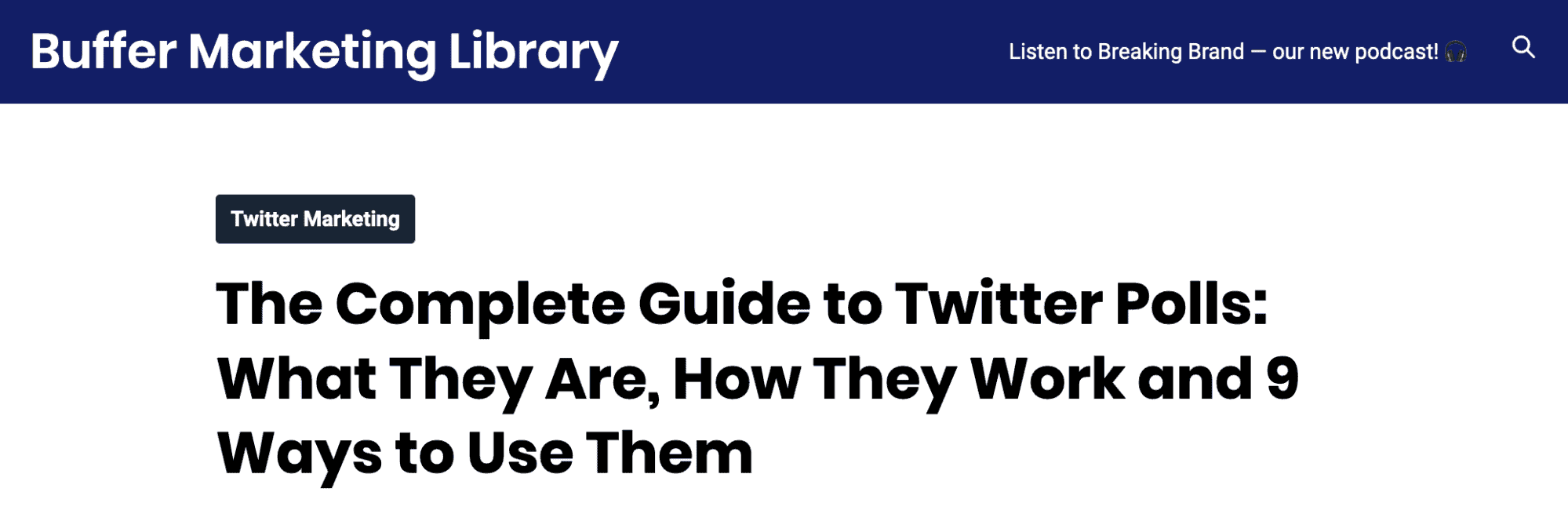
And creating go-to resources for key talking points:

If you follow industry news closely, try to use that info as a way to inspire content ideas. For example, Instagram announced its new "Guides" feature on May 18th, 2020. On May 19th, Later.com immediately published a resource on this new feature:

As your industry evolves, use these changes as inspiration to write. Every time you see some big industry news, try to write five quick headlines of things you could write related to this news.
For example, here are five post ideas based on the Instagram guides launch:
Even if you don’t write any of these posts, it’s good to start flexing your creative muscles. Train yourself to look at news stories and industry changes as potential topics to write about.
Think about the reasons you want to write.
Are you looking to grow your brand? Get your name out there? Build trust and customer relationships? Maybe it all comes down to generating revenue for your business.
To achieve any of these things, you need to put your customers first.
The best way to do this is to step into their shoes by asking them directly about their daily work lives: What’s frustrating them? What are their biggest challenges? Their biggest worries? When do they feel happiest at work? What’s taking up too much of their time?
The answer to each of these questions could spark a number of things to write about.
Your customers are the most important part of your business. Without them, your business doesn’t exist. When it comes to finding things to write about, put your customers at the heart of your strategy and create content that speaks directly to them.
The five tips I’ve shared with you today have allowed me to write hundreds of blog posts and keep content calendars filled with interesting, engaging topics. The ultimate result? Helping businesses achieve their goals.
But you won’t find things to write about without taking action. So let's get the ball rolling right away.
Now that you’ve finished this post, take 15-20 minutes, and come up with 10 things to write about. Here’s your action list:
There you have it. Your first ten things to write about.